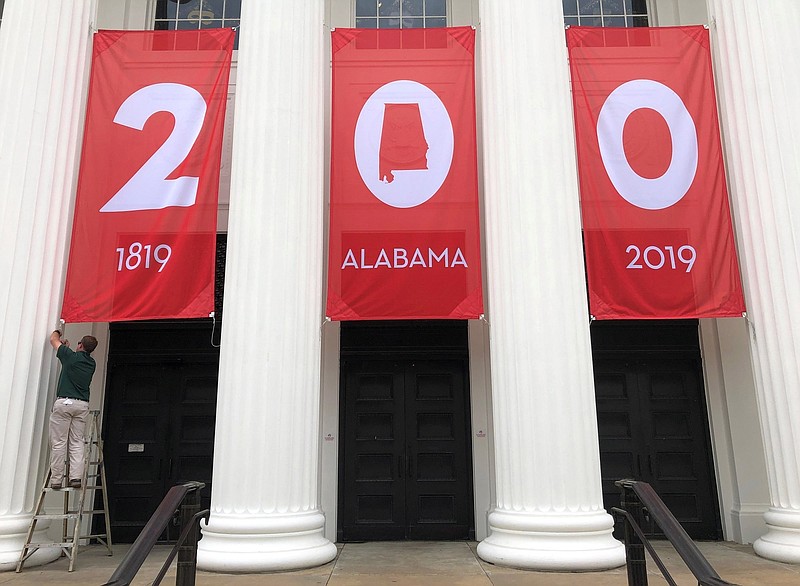MONTGOMERY, Ala. (AP) - Alabama's main state history agency, spurred by nationwide protests against racial injustice, is acknowledging that it helped perpetuate systemic racism for generations by promoting Confederate narratives while ignoring those of Black people.
A "statement of recommitment" issued Tuesday by the Alabama Department of Archives and History says the state agency was founded in 1901, the year Alabama's current Constitution was approved, to both preserve records and promote "lost cause" ideals favored by Southern whites.
"For well over a half-century, the agency committed extensive resources to the acquisition of Confederate records and artifacts while declining to acquire and preserve materials documenting the lives and contributions of African Americans in Alabama," said the statement signed by the agency's director, Steve Murray, and approved by trustees.
Housed in a state museum across the street from Alabama's Capitol, where the Confederacy was formed in 1861, the the agency said it has taken steps to change in recent decades. But it is still staffed mainly by white people, especially in its leadership and archival and curatorial staffs, the statement acknowledged.
The statement, said the agency is rededicating itself to telling a fuller story of the state.
"If history is to serve the present, it must offer an honest assessment of the past," it said.
Hundreds of school groups annually visit the archives museum, which includes extensive exhibits on the antebellum period, secession, the Civil War and Reconstruction. It also features exhibits on Alabama's role in the civil rights movement.
Murray told news outlets that work to tell a more complete history of the state began in the late '60s and accelerated in the 1980s under Ed Bridges, the former director.
Murray said the department has done "a lot of reflection" during nationwide protests against racial injustice that followed the police killing of George Floyd in Minnesota.
Alabama's attempt to revamp the way it presents its history was on display last year during the state's bicentennial celebration. Official activities included a discussion of the horrors of slavery and many events focused on civil rights, but there also were events promoted by Confederate heritage groups.
Nearly 60 years earlier, in 1961, Alabama marked the 100th anniversary of the Civil War with white women dressed in hoop skirts parading through a coliseum and a re-enactment of the inauguration of the Confederate president, Jefferson Davis, at the Capitol.
